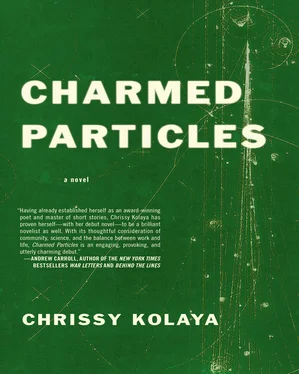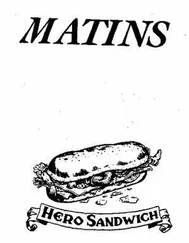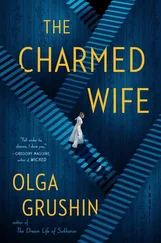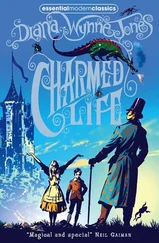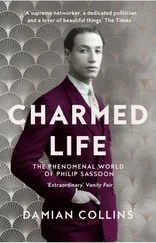Had it been completed, the SSC would have been the most powerful accelerator ever constructed, three times as powerful as the LHC, currently the world’s largest and most powerful particle collider. Many scientists believe that had the SSC project gone forward as planned, discoveries such as the Higgs boson (frequently referred to as the “God particle”) would have happened earlier and would have been made in the United States.
The story of the SSC has much to say about American attitudes toward science and the challenges scientists and science writers face when communicating such complex research to lay audiences.
The Academy is based on the Illinois Math and Science Academy (IMSA), a residential high school for gifted and talented students founded in 1985. Leon Lederman, Nobel prize — winning physicist and director of Fermilab at the time, was one of IMSA’s founders.
Love and gratitude to my partner in crime, Brook Miller, for his support, encouragement, time, feedback, and pep talks along the way.
A thousand thank-yous to agent extraordinaire Eleanor Jackson for fiercely believing in this book, for working tirelessly to find it a good home, and whose suggestions at every step made it better.
To the good people of Dzanc, for bringing this book into the world, especially Michelle Dotter and Mary Gillis, for their wise, careful edits; Guy Intoci for his impressive schedule juggling and oversight of the whole shebang; Steven Seighman for his design expertise and patience; Gina Frangello, Rhonda Hughes, Meaghan Corwin, and the entire Dzanc publicity team for all of their hard work and enthusiasm.
To Sheryl Johnston — wise, reassuring, and incredibly hardworking guide through the process of getting this book into the hands of readers.
To Adam McOmber and Christine Sneed, my writer support system, for years of encouragement, guidance, and understanding.
To the many early readers who participated in the Feedback and Serialization Project, especially Holly Witt, Katy Sirovatka, Nancy Barbour, Tom Noel, LeAnn Deane (also for her mad librarian skills!), Karen Cusey, Lindsey Fierros, Julie Eckerle, Ann DuHamel, Linda Kolaya, Helen Bergman, Vicki Wilmer, Katie Beach, Carter Beach, Pete Wyckoff, Sara Harding Lou, Aaron King, P.B. Carden, and Kevin Fenton. Forgive me if I’ve inadvertently left anyone off this long list.
To Gail Kearns for the name “Yankee Noodle Dandy.” To Wendy Gross for letting me observe and take notes during her Mary Kay event. To Pallavi Dixit for her help with Sarala’s mother’s recipes. To Jennifer Bridge for her living-history facility expertise. To the Anderson Center, where I wrote the first chapter, and fellow resident Kora Manheimer, who came up with the name “Heritage Village.” To the good people of Fermilab, especially Adrienne Kolb, John Peoples, and Andreas Kronfeld.
To the Jerome Foundation for funding to support research. To the Lake Region Arts Council and the Arts and Cultural Heritage Fund for writing time.
To Jennifer Goodnough, Troy Goodnough, and Jennifer Rothchild for helping me survive the weekend of the great book emergency.
To my family and friends for cheering me on and celebrating each small step along the way.
And with love, always, for P and E.
1. What do the chapter titles and the epigraphs at the start of many of the chapters suggest to you about the ideas at work in the book?
2. What is your initial response to the Winchesters’ unconventional family arrangement? What does Rose see as the connection between their arrangement and her certainty that hers and Randolph’s will be “one of the world’s great love stories”?
3. Early in the novel, Sarala reflects on Abhijat’s ambitions, noting that “each time he achieved one of the many goals he set for himself, he responded not with celebration and satisfaction at his own accomplishment, but by thinking, Yes, but there is more to be done.” In what ways might Abhijat’s attitude be useful? In what ways might it be detrimental?
4. Books are important to many of the novel’s characters — for Randolph and Meena it’s The Secret Museum of Mankind; for Lily and Meena it’s their love of encyclopedias; for Sarala, her self-improvement books. In what ways do these books reveal interesting or important information about each of the characters? Which books have been important to you as a reader in this way?
5. Early on in the novel, Abhijat notes that curiosity is the most important human quality. In what ways is curiosity important to each of the characters?
6. The novel explores the ways in which land use in Nicolet changes — from prairie to farmland to suburb — with the arrival of the Lab. How does this history of changing land use and the arrival of the Lab affect the community?
7. How do you respond to Abhijat’s mother’s advice that “one could best find success by first finding peace and contentment”?
8. Lily argues that “sometimes letters are a better way to know someone than all of the silly, inconsequential interactions of daily life.” Why do you think she feels this way? Do you agree?
9. If you were a resident of Nicolet, where do you think you’d come down on the issue of the Superconducting Super Collider?
10. Where in the book do you encounter characters struggling to communicate successfully? How does this manifest? Is this resolved? If so, how? If not, why?
11. How does the use of physical space in each of the homes convey ideas about the characters? For example, are there rooms that seem to “belong” to certain characters? What do these rooms say about their owners? Are there ways in which these spaces reveal something about the social structures in each of the families?
12. The idea of feeling “at home” is a central focus of the book. Where do each of the characters feel most at home? Why?
13. Do you think Sarala ever really considers leaving Abhijat? If not, why? If so, what do you think changes her mind?
14. In what ways are the two families different at the end of the book than when we meet them at the beginning?
15. What are each of the characters most hoping for throughout the novel? Which of them get what they’re hoping for? How do these outcomes affect each of the characters? Do you agree with Randolph’s opinion at the end of the book that “it can be liberating to let go of hopes that chain one to unhappiness, dissatisfaction”?
16. What do you find likeable about each of the characters? What do you find unlikeable about them?
17. What do you imagine the future has in store for each of these characters?
